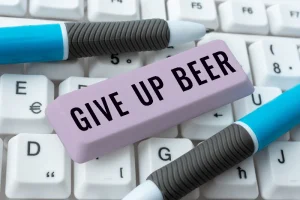
One of the most profound ways that alcohol affects you is through what it does to your body. After you drink alcohol, Volpicelli explains that the small molecules inside it get absorbed by your gut. From there, they travel to other parts of your body and affect organ systems, including the cardiovascular, immune, and nervous systems, along the way. That’s happening now in science is we’re actually getting there.
- Your risk of developing cancer will decrease, and your liver function will have greatly improved.
- And so for me, I don’t know whether it’s the right call or the wrong call, it has been a very smart and successful call for us because it’s aligned with our values.
- If you have any questions or concerns, share your results with your doctor.
Improvements in sleep, blood pressure, mood and more

When alcohol is removed from the diet, inflammation decreases, improving cardiovascular health. Reduced alcohol intake also helps in managing weight, further enhancing heart health. These changes can contribute to better circulation and what happens when you stop drinking alcohol overall well-being. Years of sobriety bring about remarkable changes to your overall health and well-being.
Day 20
On the other hand, binge drinking is generally defined as four drinks for women and five drinks for men within a two-hour period. And even occasional binge drinking episodes can have profound effects on your liver’s health over time. While alcohol is high in calories, and wine, beer, and mixed drinks add sugar to one’s diet, cutting it out may or may not help you lose weight depending on how much alcohol you consume regularly. While alcohol is high in calories, and wine, beer, and mixed drinks add sugar to one’s diet, Kumar said that simply cutting it out may not always help you lose weight. Plus, improved blood circulation enhances arousal and sensitivity.
The first days
This pattern of drinking can lead to the development of physical dependence, where the body adapts to the presence https://ecosoberhouse.com/ of alcohol and experiences withdrawal symptoms when intake is reduced or stopped. Chronic alcohol use significantly increases the risk of serious health problems, including liver disease, cardiovascular issues, neurological damage, and mental health disorders. It can also negatively impact relationships, work performance, and overall quality of life. Are you giving up alcohol to take charge of your future? If you are beset with the torture of heavy drinking and alcohol use disorder symptoms, don’t hesitate to reach out to Journey Hillside.

Alcoholism Recovery Timeline: What Happens When You Quit Drinking?
If your doctor feels you’re at risk, it will be important for you to have a thiamine supplement by IV for several days. A severe case of alcohol withdrawal can lead to complications, some of which can be life-threatening. To prevent this, your doctor may suggest a treatment program where you stay overnight. That way, you can get 24-7 support for your mental health and physical symptoms. When alcohol is abruptly removed from the body, common withdrawal symptoms often emerge within hours to a couple days8, including tremors, sweating, nausea, vomiting, and headaches.
There are many benefits to giving up alcohol, both short-term and long-term. If you’re considering quitting drinking, these benefits may be just what you need to help you decide. Of course, giving up alcohol is not always easy, and there may be some challenges along the way. But if you’re committed to sobriety, it’s possible to achieve your goal. Quitting drinking can have many important benefits for your physical and mental health, but there are many other types of benefits Drug rehabilitation you may experience as well. Like other symptoms, the impact on mood depends on the amount and duration of your alcohol use.

- Once you stop drinking, the alcohol leaves your system quite quickly.
- “The bottom line is, protect the heart with a low amount of alcohol, but increase the risk of cardiovascular disease with high amount of alcohol,” Dasgupta said.
- While everyone’s timeline is different, many people start to feel the benefits of sobriety more fully with two weeks down.
- Even if you do not have a physical dependance, if drinking alcohol was part of your normal routine, it may be a difficult adjustment period.
- Symptoms of alcohol withdrawal can range from mild to serious and can sometimes be life-threatening.
- Later they’ll include moving towards feeling hope, returning self-esteem and may include creating new circles of stable friendships or reviving and rebuilding relationships.
Even in relatively small doses, alcohol can negatively affect digestion by altering the stomach’s secretion of gastric acid and hamper the digestive enzymes’ ability to function and break down food. When these functions are impaired, your digestion suffers. Studies have shown that pairing alcohol with a meal can slow down digestion while the overproduction of gastric acid can irritate the stomach. When Chris and I went alcohol free for a bit, she’s like, I’m not doing that. Because one of the things, I agree with you, I agree with you that our medical approach and the medical system is about treating illness versus keeping you healthy and whole.
Million Readers. 1 Life-Changing Newsletter
In addition to healthier activities, at this point, you’ll likely enjoy a more normal appetite. It’s common to maintain a more steady diet in sobriety, instead of skipping breakfast the morning after drinking, for example. It’s likely the past few days have been challenging as your body is healing from the effects of alcohol. There may be some thoughts like “do I really have to do this for 25 more days!?
Seeking medical treatment for heavy drinking is a testament to strength, not a sign of weakness, and it’s the first step towards reclaiming control over one’s life. Mentally, sobriety restores balance to brain chemistry, leading to improved cognitive function, sharper focus, and better emotional resilience. It reduces anxiety and depression while fostering healthier coping mechanisms and emotional well-being.